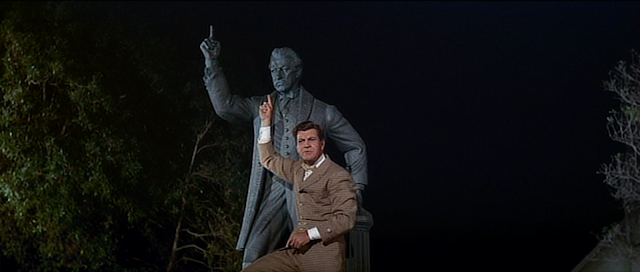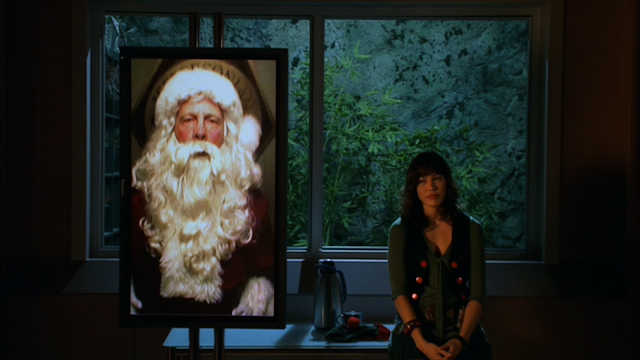Two months ago, I started reading
The Art of Watching Films (sixth edition) by Joseph M. Boggs and Dennis W. Petrie, and I decided to try to watch at least some of the movies that are mentioned in it. A few weeks ago, I watched
The Pianist again (it had been about five years since I last saw it), and I noticed two significant details.
When Władysław Szpilman is introduced, he's playing Chopin's Nocturne in C sharp minor on Polish radio. In the frame, he's facing left:
(I have only the full-screen version.)
Near the end of the movie, he's playing this piece on the radio again, but the shot composition is reversed, so he's now facing right:
Ostensibly, Szpilman has gone back to doing exactly what he did before, as he told Hosenfeld: "I'll play the piano again, on the Polish radio." He looks about the same as he did at the beginning of the movie, and he's even playing the same piece. The difference in composition between these two shots, however, illustrates that there has been a change and that Szpilman has been affected by what he's experienced.
In a scene early in the movie, a German soldier harasses Szpilman's father on the sidewalk. His comments contain a shift in tone, but this doesn't come across in the English subtitles.
Soldier
Dialogue: Sie! Herkommen! Warum haben Sie sich nicht verbeugt?
Subtitles: Why didn't you bow?
My translation: You! Come here! Why didn't you bow?
Szpilman's father
Dialogue: Entschuldigung Sie.
Subtitles: I beg your pardon.
My translation: Excuse me.
Soldier
Dialogue: Euch ist der Gehweg verboten. In die Gosse mit dir.
Subtitles: You're forbidden the pavement In the gutter!
My translation: For you [plural] the pavement is forbidden. Into the gutter with you [singular].
Initially, the soldier uses Sie, which is a polite or formal address, but then he switches to dir (the dative form of du). Normally, du is used only in close relationships (with friends and family, for example). In this context, it's disrespectful and indicates the soldier's belief that Szpilman's father is inferior to him. Throughout the movie, other German soldiers also use du (or its inflected forms) when talking to the Jews. Hosenfeld is an exception to this, though, and consistently addresses Szpilman with the polite Sie.






























